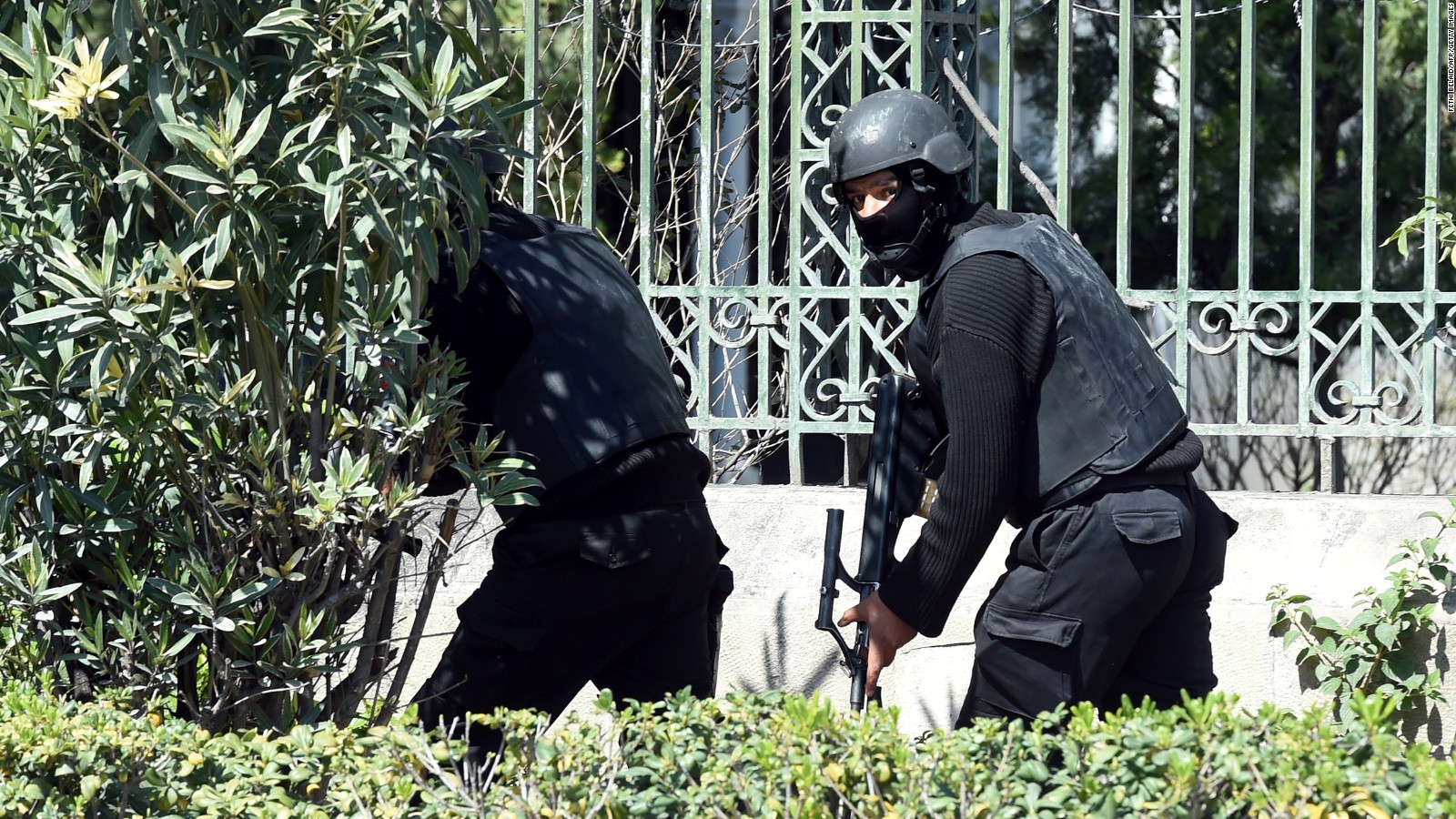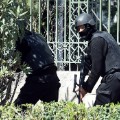American warplanes hit an ISIS camp in Libya where foreign fighters had been engaged in advanced training, White House Press Secretary Josh Earnest said Friday. Local officials said at least 49 people had been killed and six injured.
Noureddine Chouchane, a senior operative in the terrorist group from Tunisia, was believed to be among those from around Africa and the Middle East who had converged on the site. It was not immediately clear whether Chouchane was killed, Earnest said.
Chouchane is thought to have played an instrumental role in two terrorist attacks in Tunisia last year, one at Tunis' Bardo Museum that killed 23 people and another at a seaside resort in Sousse that left 38 people dead. ISIS claimed responsibility for both massacres.
Also believed to be among the dead are two Serbian embassy employees who were kidnapped last year, Serbian Foreign Minister Ivica Dacic said. Communications officer Sladjana Stankovic and driver Jovica Stepic were kidnapped in Sabratah in November 2015.
A spokeswoman for the Serbian Foreign Ministry said, however, that Serbia was still waiting for official confirmation of their deaths from Libyan authorities. She confirmed that Serbia had been informed by the Pentagon that the specific location where they were believed to be held had been bombed.
Friday morning's U.S. strike in the al-Qasser district in Sabratha, a coastal city in northwestern Libya where most residents are from Tunisia, killed at least 49 people, Hussain al-Thawadi, the Mayor of Sabratah, said.
Al-Thawadi told Libya TV in an interview the death toll could rise because more people might still be under the rubble. He said the house was rented by suspected ISIS members, and he believed more than 60 people were inside it when it was hit.
Also six people were wounded, according to the Sabratha Municipal Council.
CNN Map

U.S. strikes ISIS
A Libyan man started to expand the house in Sabratha to several levels last year, security officials in the city said. He had brought in several groups of fighters over the past few months, including one batch two days ago. That house was struck Friday.
Over the last several weeks, the United States observed militants moving around the site and undergoing what appeared to be special training, a U.S. official said. "This was outside the normal training camp scenario," the official said.
The activity raised concerns the people there might be planning to launch an external attack, though no details were discovered about where or when this might take place.
The U.S. military has launched hundreds of airstrikes against ISIS targets over the past two years. These have been concentrated in Iraq and Syria, where the Islamist extremist group has established its biggest foothold and has its de facto capital in Raqqa.
But Libya -- a North African nation that's been in turmoil and a hotbed for some militant groups since a 2011 revolution that toppled longtime dictator Moammar Gadhafi -- has been in its crosshairs as well.
ISIS expansion in turbulent Libya
ISIS has emerged as the world's top terrorist threat, having conducted or inspired about 70 attacks in 20 countries since declaring its caliphate in June 2014.
It is significant that ISIS leader Abu Bakr al-Baghdadi exerts more control over the ISIS branch in Libya than any other,according to a report late last year to the United Nations Security Council. This conclusion is in line with U.S. intelligence determinations that al-Baghdadi sees the relatively lawless, impoverished North African state as prime ground to enlarge his self-declared caliphate.
The group has asserted itself in Libya by taking over territory and exercising terror, as evidenced by its beheadings of Egyptian Coptic Christians about a year ago on a Libyan beach.
Libya has also been a base to train militants, devise plots and launch them in places like neighboring Tunisia, which has been considered the Arab Spring's success story but has not been immune to the violence wrenching the region.
The Bardo Museum and Sousse beach attacks are gut-wrenching proof of that, not just because of the human carnage but also for their negative effects on a Tunisian economy that's long benefited from tourism.
Both attacks were carried out by one terror cell whose members came from Tunisia, communicated with ISIS leaders in Syria and Iraq, and trained in Libya, a Western counterterrorism source said. That training happened near Sabratha, about 60 miles (100 kilometers) east of the Tunisian border where the Friday morning strike took place.
The same cell planned to attack France's diplomatic complex in Tunis, only to be thwarted as Tunisian security forces moved in, according to the source.
All of its roughly half dozen core members -- at least those not killed in attacks -- who were still in Tunisia are now in custody. But others involved in the plots may not be in the country, possibly finding refuge in their former training ground in Libya instead.
U.S. official called for 'decisive military action' in Libya
It's no surprise the United States would help Tunisia. Last May, President Barack Obama cemented America's strong ties by designating the country as "a major non-NATO ally."
A few weeks ago, Obama's top military adviser talked about stepping up efforts to curtail ISIS specifically in the North African country.
Addressing reporters while traveling in Europe, Gen. Joseph Dunford, the Joint Chiefs of Staff chairman, said the United States wants

































Comments
Post a Comment